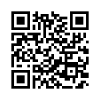BAHASA, NEGARA, DAN KEKUASAAN: STRUKTUR-KULTUR POLITIK KEBIJAKAN BAHASA INDONESIA
Abstract
(Title: Languages, State, and Power: Political Structures of Indonesian Policy). Language as a discipline has been established by the political preconditions and the re-sult is negotiating the power of the state. Its development is not entirely neutral because the tendency of language as a tool of power has a strong gap to be constructed in such a way. This epistemological reality then strengthens the reciprocal dictum between langua¬ge and power that can be hegemonically practiced as long as the state applies a system of rules in a systemic manner. This paper tries to investigate Indonesian language as a practice of state power, both projected historically, politically, and economically. All of them are covered by cultural narratives that are reinforced through structural patterns to culture.
Keywords: language, country, power, policy, Indonesian language
Keywords
Full Text:
PDFReferences
Anderson, B. R. (1966). The Languages of Indonesian Politics. Cornell: Cornell University Press.
Anwar, K. (1990). Indonesian: The Development and Use of A National Language. Yogyakarta: Gadjah Mada University Press.
Claude, LV. (1972). Structural Antrophology. London: Penguin.
Foucault, M. (1980). Power/Knowledge: Selected Interviews and Other Writings 1972-1977. New York: Pantheon Books.
Geertz, C. (1963). Peddlers and Princes. Chicago: The University of Chicago Press.
Grimes, B. F. (1996). Ethnologue: Languages of the World. Dallas: Summer Institute of Linguistics.
Harre, R. (1970). The Principles of Scientific Thinking. London: Macmilan.
Harris, R. (1987). Reading Saussure: A Critical Commentary on the Cours de Linguistique Generale. Cambridge: Gerald Duckworth & Co Ltd.
Heryanto, A. (1992). Pembakuan Bahasa dan Totalitarianisme. Jurnal Kritis: Universitas Kristen Satya Wacana Salatiga.
Kaisiepo, M. (1991). “Ketika Kebudayaan Menjadi Alat Legitimasi Politik” dalam Dinamika Budaya dan Politik dalam Pembangunan. Yogyakarta: Tiara Wacana.
Kridaklasana, H. (1974). The Function of a Standard Dictionary in the Development of Indonesian. The Indonesian Quarterly.
Sneddon, J. (2003). The Indonesian Language: Its History and Role in Modern Society. Sydney: University of New South Wales Press.
Stern, G. (1980). Meaning and Change of Meaning. Gotenborg.
DOI: https://doi.org/10.21831/diksi.v26i2.25470
Refbacks
- There are currently no refbacks.
Copyright (c) 2018 Diksi
Jurnal Diksi is published by Faculty of Languages, Arts, and Culture, Universitas Negeri Yogyakarta. It is licensed under a Creative Commons Attribution-ShareAlike 4.0 International License. Based on a work at http://journal.uny.ac.id/index.php/diksi
Our Journal has been Indexed by:
Diksi Journal is published by the Faculty of Languages, Arts, and Culture Universitas Negeri Yogyakarta in collaboration with Himpunan Sarjana Kesusasteraan Indonesia (HISKI)
Supervised by:

2.png)














